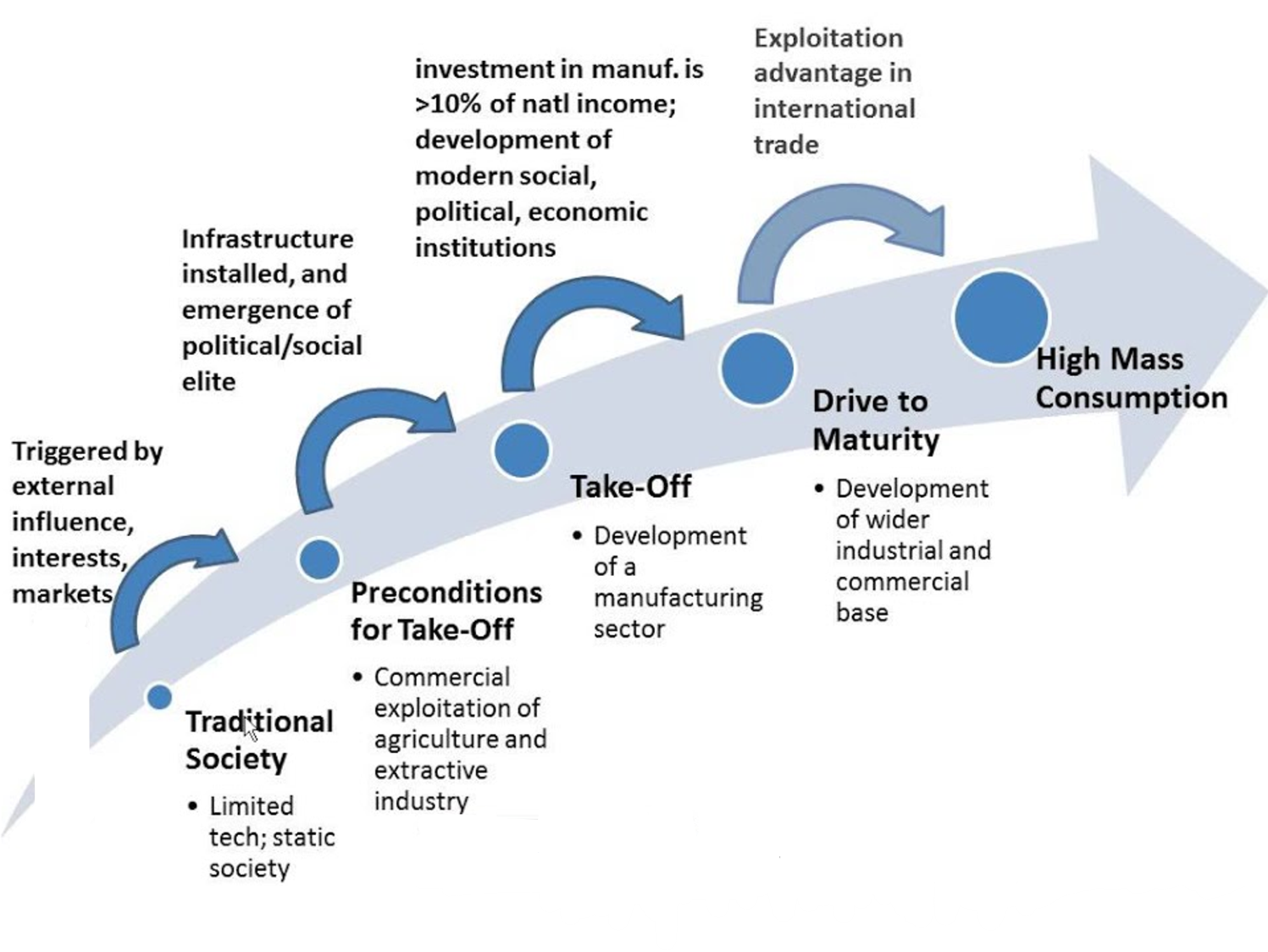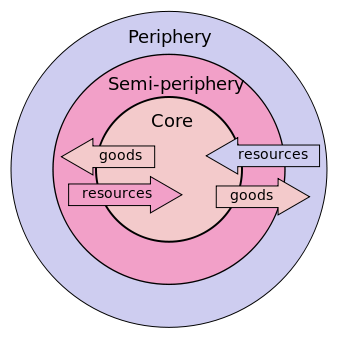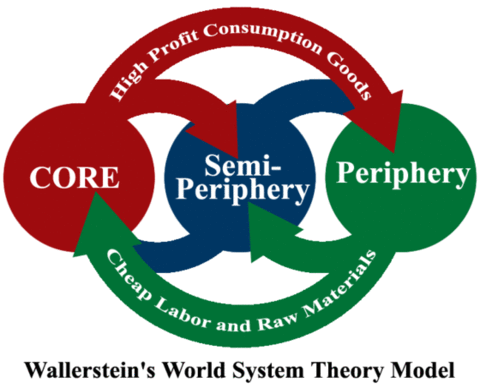Photo AI
Last Updated Sep 27, 2025
Emerging powers vary in their influence on people and the physical environment Simplified Revision Notes for A-Level Edexcel Geography
Revision notes with simplified explanations to understand Emerging powers vary in their influence on people and the physical environment quickly and effectively.
389+ students studying
Emerging powers vary in their influence on people and the physical environment
Emerging Superpowers → Nations w/ significant influence that is growing
2019 - 46% of GDP globally = USA & EU, 16.2% = China & next largest = Japan (6%)
↳ Likely to change:
- EU & Japan = ageing populations ∴ demographic won't grow so economy will grow at slower rate
- USA not as impacted by demographic, but economic & population growth not likely to be as rapid
- China's population = ageing. But, manufacturing based economy - huge potential as it shifts to growth based on services & consumerism (also true for Brazil, which, like China, has a growing middle class)
- Other demographically large countries will get much bigger & potentially much richer (India, Indonesia) Future Superpowers Likely to Emerge from BRICS and G20 (possibly MINT)
↳ G20 countries collectively account for 90% of world GDP, 80% of world trade & approx 65% of pop
↳ Economic influence: Economic growth has powered the world economy
↳ Political influence: Influential through economic importance - can join world decision making organisations
↳ Environmental influence: Climate change = global issue & emerging countries have a crucial role to play in tackling it
Emerging Power Strengths & Weaknesses
-
Countries w/ large population & economy likely candidates for future superpowers Weaknesses of EU
-
27 nations rarely agree ∴ many decisions are compromises
-
Economy weak since global financial crisis
-
Ageing populations
-
BREXIT weakens the economic power & distracts the EU from core economic & social purposes
Theories of Power
Modernisation Theory - W. W. Rostow
-
AKA 'Take-off model' - Based on historical development of USA and UK
-
Suggests that economic development of pre-industrial societies will be slow certain pre-conditions are met (5 stages): Modern infrastructure, education, banking and effective government

-
Saw capitalism as the answer to poverty - emphasis on cultural and institutional transformations if developing nations were to modernise
- Belief: Developing countries needed to be integrated into the world market & establish free trade if they were to grow economically
- Argues a relationship between developed and developing countries is one of dependency - periphery (satellite) countries provide a range of services for core (metropolitan) countries. Such as:
- Cheap commodities (oil, coffee)
- Labour in form of migration (causing brain drain)
- Markets for manufactured goods & locations for investment (mines, HEP dams)
- ∴ preventing developing countries from making economic progress
-
Good at explaining why some countries manage to become wealthy
-
(-) Only describes the process of economic change & growth (assumes it to be the same always). Does not help to understand why some countries gain the political & cultural power needed to be a superpower
Dependency Theory - A.G Frank
Dependency → Progress of a developing country is influenced by economic, cultural & political forces that are controlled by developed countries
- Neo-colonial mechanisms and a net transfer of wealth from developing to developed world are responsible
- Theory is relevant to the superpower status because…
- Superpowers that control developing countries gain economic wealth & power by exploitation
- ∴ superpowers actively contribute to the underdevelopment of these countries ∴ emerging countries ↓

Dependency Theory - A.G Frank
- (-) However, arguably some NICs have developed, Taiwan, S. Korea, Singapore etc → The dependency theory is very static - doesn't explain why some developing countries have grown rapidly while others have not Frank's research led him to believe that development was not possible while developing countries locked in the dependency relationship
World Systems Theory - Immanuel Wallerstein
- Sees the world as a global system of core (USA), semi-periphery and periphery nations
- The semi-periphery countries are the emerging economies, some of which are economic superpowers
- Flexible: Acknowledging some countries may change group over time
- Countries develop during cycles of stagnation
- In the World systems theory model:
- Core countries use semi-periphery locations as areas to manufacture goods or locations for services
- Core countries get large returns on foreign investment they make in semi-periphery nations
- Periphery regions provide raw materials to supply manufacturing in semi-periphery regions and consumption in core regions

World Systems Theory - Immanuel Wallerstein
- (-) really an analysis of the world patterns of power and wealth rather than a detailed explanation of them None of the theories are especially good at identifying why some countries, but not others become superpowers
500K+ Students Use These Powerful Tools to Master Emerging powers vary in their influence on people and the physical environment For their A-Level Exams.
Enhance your understanding with flashcards, quizzes, and exams—designed to help you grasp key concepts, reinforce learning, and master any topic with confidence!
506 flashcards
Flashcards on Emerging powers vary in their influence on people and the physical environment
Revise key concepts with interactive flashcards.
Try Geography Flashcards14 quizzes
Quizzes on Emerging powers vary in their influence on people and the physical environment
Test your knowledge with fun and engaging quizzes.
Try Geography Quizzes29 questions
Exam questions on Emerging powers vary in their influence on people and the physical environment
Boost your confidence with real exam questions.
Try Geography Questions27 exams created
Exam Builder on Emerging powers vary in their influence on people and the physical environment
Create custom exams across topics for better practice!
Try Geography exam builder22 papers
Past Papers on Emerging powers vary in their influence on people and the physical environment
Practice past papers to reinforce exam experience.
Try Geography Past PapersOther Revision Notes related to Emerging powers vary in their influence on people and the physical environment you should explore
Discover More Revision Notes Related to Emerging powers vary in their influence on people and the physical environment to Deepen Your Understanding and Improve Your Mastery
96%
114 rated
Topic 7: Superpowers
Intergovernmental Organisations (IGOs)
331+ studying
195KViews96%
114 rated
Topic 7: Superpowers
Geopolitical power stems from a range of human and physical characteristics of superpowers
390+ studying
194KViews96%
114 rated
Topic 7: Superpowers
Patterns of power change over time and can be uni-, bi- or multi-polar
243+ studying
189KViews96%
114 rated
Topic 7: Superpowers
Superpowers have a significant influence over the global economic system
231+ studying
184KViews